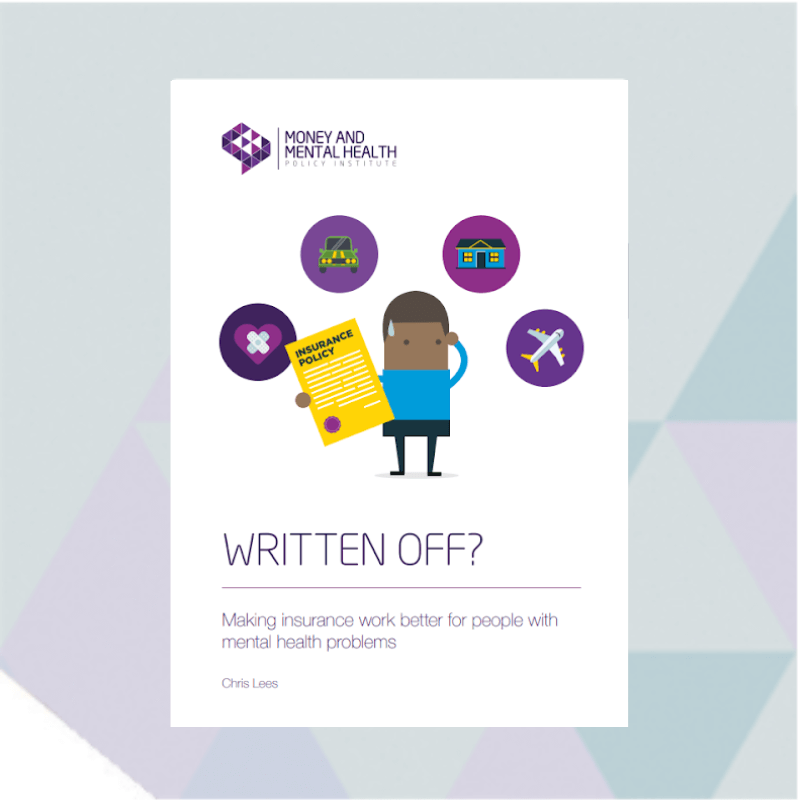Chris Lees, Senior Research Officer, Money and Mental Health
Written Off?
Making insurance work better for people with mental health problems
This report reveals the nexus of difficulties that affect people with mental health problems when choosing, buying and using insurance products, like travel, life and income protection. The research highlights:
- Issues with how products are priced, explained and managed by firms can leave people worried about getting a fair deal, unclear on what they are covered for and struggling to make a claim. In some cases, we found that people with mental health problems cannot access insurance at all.
- Through a mystery shopping exercise – testing 15 travel insurance providers including small, large and specialist firms – we found that a ‘customer’ with severe bipolar disorder was turned down by 9 providers. When cover was offered, the price quoted was 6 to 27 times higher than that quoted to a customer without a mental health problem.
- Being priced out of, or even excluded from, insurance products is leaving people unable to access vital cover, more exposed to financial risk and experiencing unnecessary distress during the cost of living crisis.
- The lack of transparency in how decisions are made is contributing to low levels of trust in the industry. We heard from members of our Research Community who felt as though they are being discriminated against by insurers. Sometimes this resulted in a reluctance to disclose to their provider for fear of unaffordable premiums or declines.
Key Recommendations
This report makes several policy recommendations for firms, regulators and government to ensure people with mental health problems are treated fairly, understand their policy and make the most of their cover.
- The Financial Conduct Authority (FCA) should launch an investigation to examine the data and models firms use in pricing decisions to guarantee they comply with regulations and laws. This must be accompanied by clear expectations for insurance firms to deliver fair value for customers with mental health problems, which is a key element of Consumer Duty.
- The insurance industry should use accurate data and provide greater transparency, so customers know what information is used and how to challenge decisions. This will also involve increased accessibility throughout the customer journey, making it easier to understand policies, make claims and help those struggling with payments.
- The government should ensure the FCA has the resources to launch the industry-wide investigation, and explore the potential for a social policy intervention to ensure people with mental health problems can access insurance in key markets.
 This report was kindly sponsored by The Which? Fund, funded by the Consumers’ Association. It represents the research and views solely of the authors and of the Money and Mental Health Policy Institute and does not represent the views or experiences of Which? or the Consumers’ Association.
This report was kindly sponsored by The Which? Fund, funded by the Consumers’ Association. It represents the research and views solely of the authors and of the Money and Mental Health Policy Institute and does not represent the views or experiences of Which? or the Consumers’ Association.
